When Luis Eduardo Alves Lima first saw the unmistakable black dorsal fin cut through the water while he was sailing from Lisbon to Ibiza he was elated.
But that excitement quickly turned to concern as the Brazilian sailor realised a pod of orcas had locked on to a target.
That target was his sailboat.
READ MORE: The graph that spells dire news for our oceans
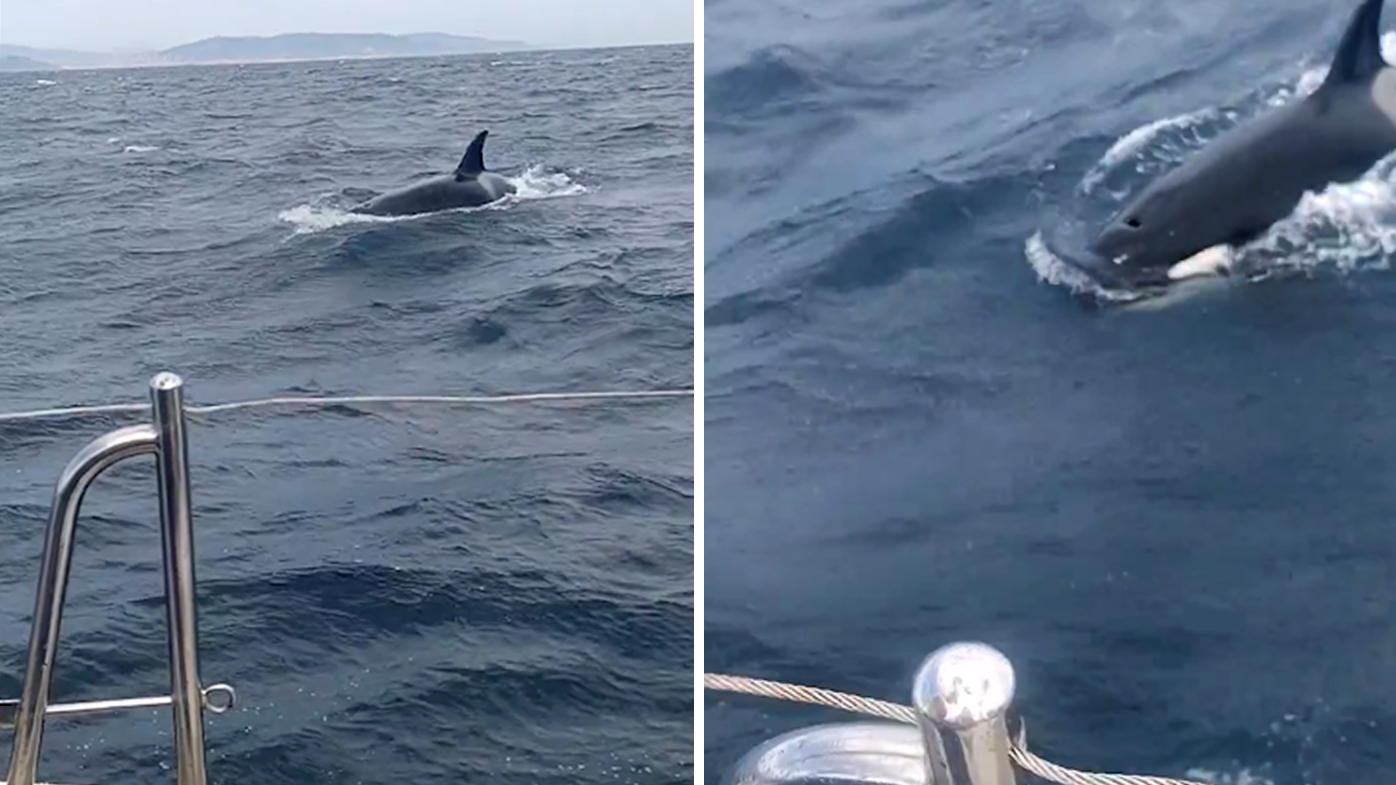
The encounter, which occurred around 2pm local time on June 4, took place close to the Strait of Gibraltar, a stretch of coast that has become notorious for orca attacks on vessels.
"It was my first encounter with orcas and at first I thought it was beautiful to be sailing with them," Lima told 9news.com.au.
But then he realised he was surrounded by eight of the apex predators.
The encounter took a turn.
"I didn't realise I was being attacked until after a few minutes I saw an orca that was breaking the rudder and I realised that it was more serious and they weren't as friendly as dolphins are," Lima said.
"As my sailboat is a very strong classic Hallberg-Rassy they only managed to break the rudder despite hitting the hull with their heads trying to turn the boat.
"Otherwise it would have flipped.
"I was very surprised."
READ MORE: 'Massive' great white spotted after surviving 'infamous' attackers
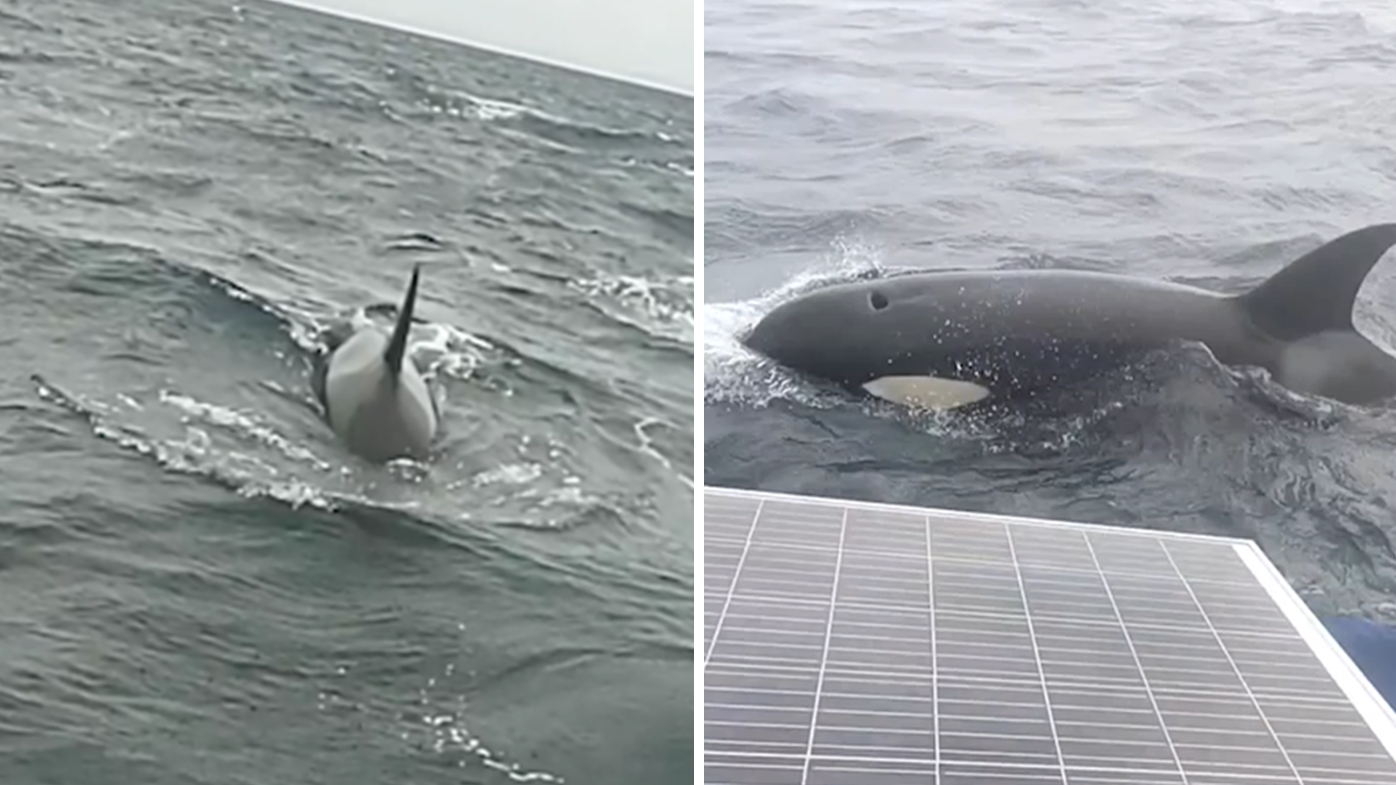
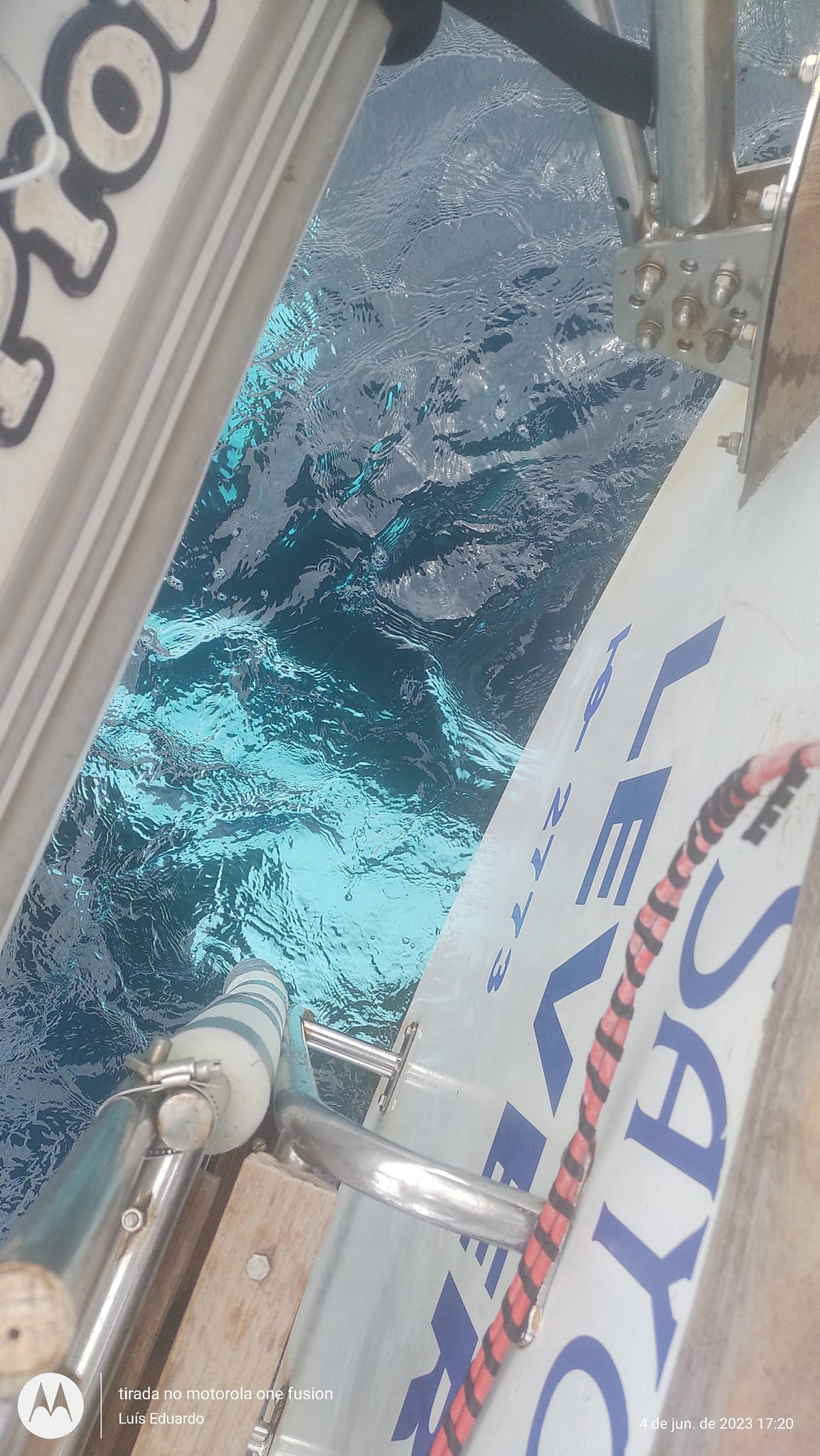
Lima turned off the engine and kept the vessel stationary as the orcas rammed his 12-metre sailboat, which weighs around 12 tons, for around 20 minutes.
Then they stopped.
But the pod returned again an hour later.
"The second time it was faster because they had nothing else to do as they had already taken the rudder," he said.
"I immediately headed for Barbate for repairs."
Lima branded the attack as "intelligent".
The sailor has urged others to avoid the Cadiz region to Gibraltar and sail close to the coast instead of through deep water, where possible.
His comments echoed those of another sailor, Greg Blackburn, who also encountered a pod of orcas near Tangier in Morocco, on May 2.
READ MORE: La Niña and El Niño: Will we switch from one to the other in 2023?
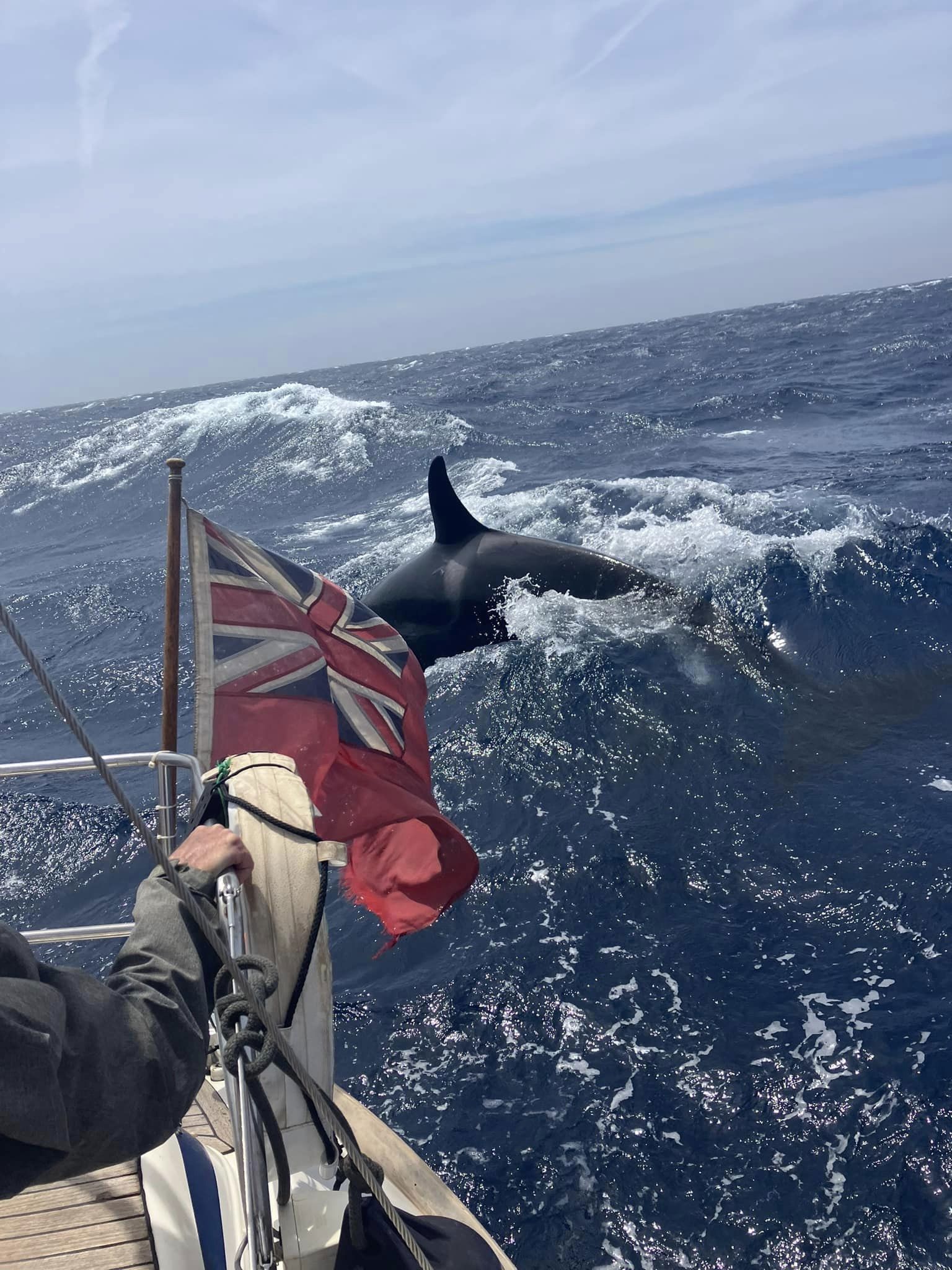
"You can see in one of (my) videos the matriarch coming up and attacking the rudder with calf at side of her, then she drops back and then the little calf gets in to have a go," Blackburn said.
"It was definitely some form of education, teaching going on."
'Moment of agony': What could be driving orca attacks
Biologists have long theorised what could be sparking the attacks, which first began in 2020.
Explanations so far have ranged from territorial, defensive, or play behaviour.
Dr Alfredo López Fernandez, a biologist at the University of Aveiro in Portugal and representative of the Grupo de Trabajo Orca Atlántica, or Atlantic Orca Working Group, claimed last month a traumatised orca known as White Gladis, initiated the response.
He said the behaviour started after a "critical moment of agony", potentially the result of collision with a vessel, which other animals learned to imitate.
White Gladis can be identified as scars stripe her body.
Wildlife scientist Dr Vanessa Pirotta told 9news.com.au the theory holds water.
"We are learning more about these killer whale incidents everyday," she said.
"The idea behind the traumatised killer whale 'White Gladis' does continue to grow with additional observations of her carrying out targeted behaviour.
"These killer whales are targeting boat rudders and biting them and sometimes causing them to come off. It is possible she has had a negative interaction, which has promoted this targeted behaviour.
READ MORE: 'Go time': The croc encounter that left a veteran tour guide stunned
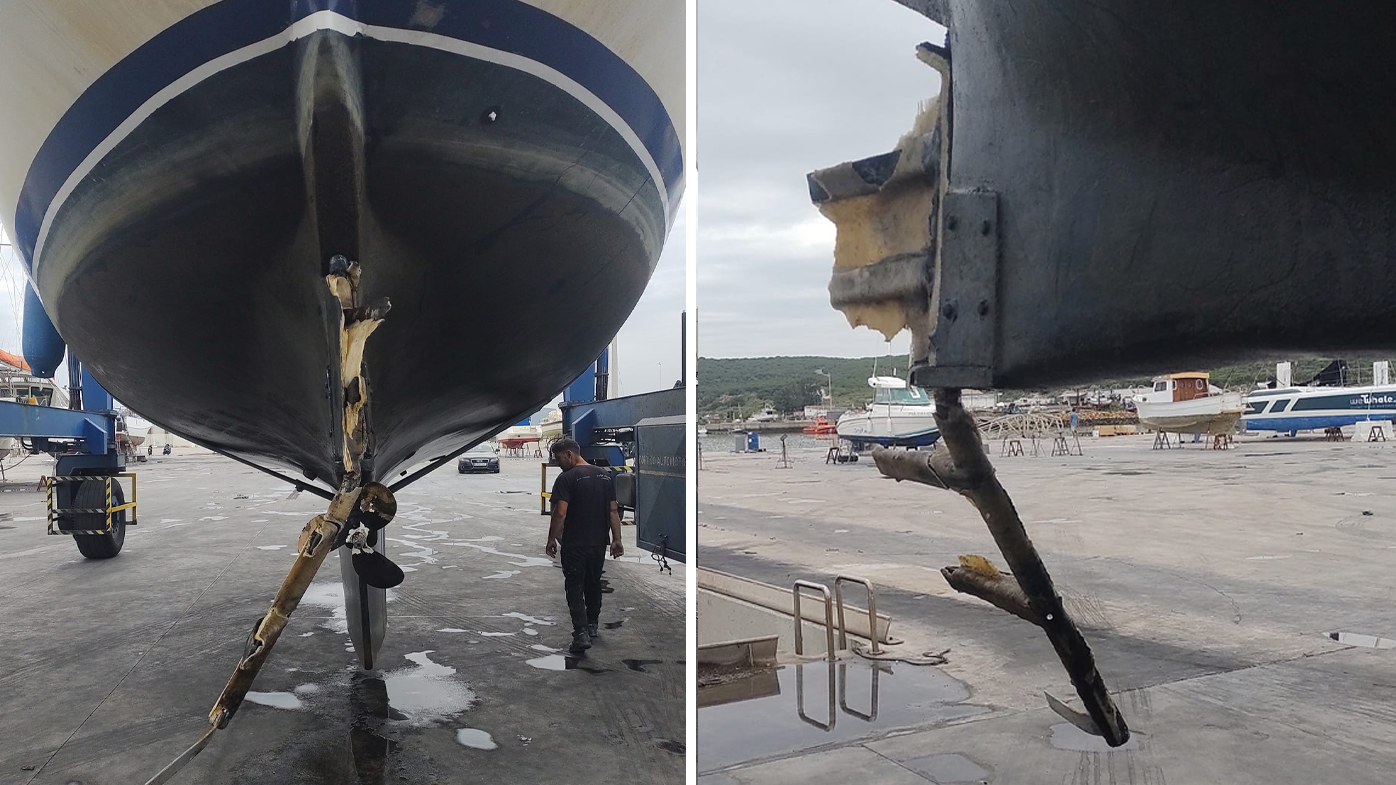
She said there's a possibility the animals will move on from the behaviour, but added more needs to be done to help both humans and the animals.
"Perhaps this is a behaviour which will fade out although it's been two years now and we continue to see targeted interactions," she said.
"Attempts to mitigate such interactions continue. Learning more about killer whale behaviour in the area continues and education around such events for mariners is key.
"The reality is, no one wants any harm to come of this and authorities want to do their very best to protect both killer whales and mariners.
"How exactly this will be done is not yet clear."
Most of the interactions thus far have been relatively harmless, albeit expensive.
It's believed there have been more than 500 orca assaults since 2020, with only several vessels sunk.
Lima, who is travelling through Europe by boat, estimates his damage bill will run to about €6,000 (AU$9570).
Sign up here to receive our daily newsletters and breaking news alerts, sent straight to your inbox.
